Coal Shipments to Advanced Economies Down 17%
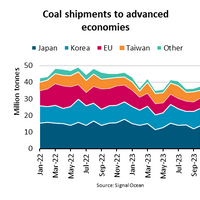
“In the first 10 months of 2023, coal shipments to advanced economies fell by 17% y/y, as demand for electricity declined and the share of electricity produced using renewable energy rose. Also slowed economic activity and high energy prices affected electricity demand,” says Filipe Gouveia, Shipping Analyst at BIMCO.Between January and August, electricity production in advanced economies fell by 4% y/y, according to data from the International Energy Agency. In 2023, measures against high inflation slowed economic growth in advanced economies.
Coal Shipments to India fall 9% as Domestic Mining Increases
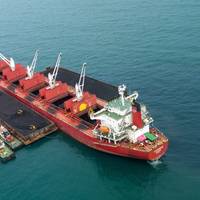
During the first nine months of 2023, coal shipments to the world’s second-largest importer of seaborne coal, India, fell 9% y/y. A 12% y/y rise in domestic coal mining replaced imports and electricity production continued to rise despite lower production from hydropower. This is according to Filipe Gouveia, Shipping Analyst at BIMCO.To ensure energy supplies, India’s government has pushed for an increase in domestic coal mining. Indian coal imports peaked in 2019 and significantly fell during the Covid pandemic before partially recovering in 2022.
Why Ammonia Is the Fuel of the Future for Maritime Shipping

Commercial maritime shipping has a fuel problem. While the industry has cemented its position as the essential piece of the global supply chain—moving more than 80% of all international goods by volume—its dependence on carbon-emitting fuel has come with a high cost.Maritime shipping is responsible for roughly 3% of all greenhouse gas emissions, according to the International Maritime Organization. The longer that ships continue to run on carbon-emitting fuel, the harder it will be to reach net zero emissions by 2050 and to prevent the worst damage predicted by climate scientists.
MAN's 175D High-speed Engine is Now Biofuel-ready
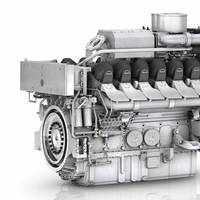
MAN Energy Solutions announced its MAN 175D high-speed engine is now formally approved for operation on 100% biofuels, offering a more environmentally friendly option for ferries, offshore supply vessels, tugs and other working vessels.Biofuels and biofuel blends are gaining increased interest and uptake among owners and operators seeking to reduce greenhouse gas emissions from their vessels.The the MAN 175D engine range, which includes 12-, 16- and 20-cylinder variants with outputs ranging from 1…
China Eases Australian Coal Ban
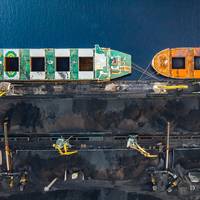
The increasing need to secure energy supplies after easing COVID-19 restrictions has pushed China to gradually resume Australian coal imports and urge domestic miners to boost their already record output.The lifting of the unofficial ban on Australian coal imports, which were halted in 2020 in a fit of Chinese pique over questions on COVID's origins, is the clearest sign yet of the renewed ties between them. The resumption is also a reminder of their economic interdependence as Australia's raw materials play a crucial role in fuelling the export-oriented economy of China…
Yaskawa, Corvus Team Up to Develop Short-Circuit Limiter for Maritime Battery Packs
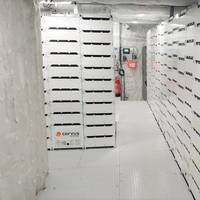
Finland-based power electronics specialist Yaskawa Environmental Energy/The Switch is partnering up with maritime energy storage system (ESS) manufacturer Corvus Energy to continue the development of its smart Battery Short-Circuit Limiter (BSCL) protection device for large-scale battery solutions and advanced DC power distribution.Under the three-year memorandum of understanding (MoU), Corvus Energy becomes the preferred partner for Yaskawa Environmental Energy / The Switch in the ongoing development of the.According to the companies…
Ammonia Marine Fuel Study Gets $6.7 Million Grant
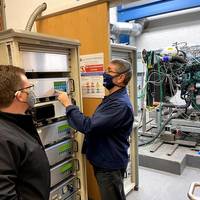
A group of academic and industrial partners were awarded a $6.7 million grant by the Engineering and Physical Sciences Research Council (EPSRC) to accelerate understanding, technologies and policies relating to the use of ammonia as a sustainable fuel. The project begins in June 2022 and will run for 5 years.Entitled Decarbonized Clean Marine: Green Ammonia Thermal Propulsion (MariNH3), the project brings together academics from Nottingham, Birmingham, Brighton, Cardiff and STFC…
Alfa Laval Making Headway on Methanol Solutions
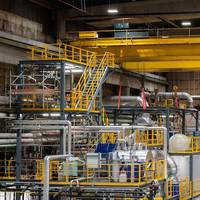
Seen as a next step toward the maritime industry’s decarbonization goals, Methanol—if produced from renewable green sources—will bring the industry to a level of carbon neutrality. At Alfa Laval, the technologies to enable that step are being developed.As a low-flashpoint fuel, methanol poses significant challenges that require a new approach to fuel supply. Alfa Laval is partnering with MAN Energy Solutions to develop a low-flashpoint supply system (LFSS) for ME-LGIM two-stroke engines.
The Shipping Industry Embraces Battery Power
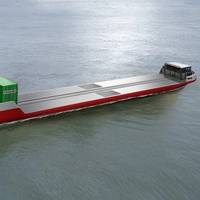
The past decade has seen tight restrictions on emissions from vessels, notably with a 2015 move to a .10% sulfur maximum in Emission Control Areas (ECA) in North America and in northern Europe. As the International Maritime Organization (IMO) now shapes shipping’s decarbonization future, shipowners are looking at transitions away from fossil fuels. Among the myriad of alternatives are lithium ion batteries and some early forays into hydrogen fuel cells.To date, large batteries are used on short runs…
Future Propulsion & Setting the Course to Low-Carbon Shipping
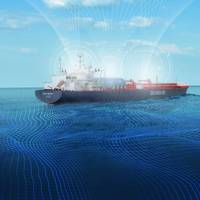
The pace at which the maritime industry transitions to low- and zero-carbon fuels will have the single biggest impact on its global carbon footprint, more than predictable shifts in commodity demand, advances in ship technology and operating practices, or new designs.That is a key finding of a comprehensive new report, Setting the Course to Low-Carbon Shipping, from the American Bureau of ShippingThe report looks at the decarbonization of shipping via two distinct scenarios: a ‘standard’ scenario…
SAL Heavy Lift Taps Inatech to Navigate IMO 2020
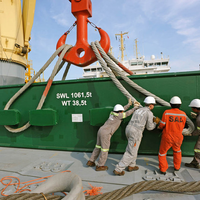
German fleet operator SAL Heavy Lift has hired Inatech, a unit of Glencore, to ensure compliance with new low-sulphur emissions rules and optimize bunker strategies.Inatech has seen increased onboarding of its ‘Smart Trader’ app, which enables companies to map entire fleets of ships and visualize and plan for best port to bunker given sea and port conditions to achieve lowest prices for the desired quality of fuel. SAL Heavy Lift will apply Smart Trader across parent group Harren…
Future Ship Fuels: Cut through the Smoke

Ship owners increasingly face complex investment decisions as they try to navigate the most efficient course to the low-carbon future. Ever since the IMO set the industry’s ambitious emission-reduction targets for 2030 and 2050, owners have been inundated with information about future fuels and technologies that may, or may not, ultimately lower the carbon footprints of their fleet.Some of the new technologies hold promise, but the day-to-day viability of too many of them remains unproven; the same can be said for many of the potential fuels.
ABS Calls for New Tech in Marine Fuels
ABS Chairman, President and CEO, Christopher J. Wiernicki, mapped out the future of marine fuels, indicating that the 2050 targets will require technology beyond today’s state-of-the-art.“Technology advances of the next decade may entirely change our view of the future, but based on what we see today we can identify three developmental pathways for future fuels distinguished by the onboard technologies they require. These are: the LNG or light gas pathway, the bio/synthetic pathway and the alcohol and heavy gas pathway,” he said.“Within each of these pathways are many variables related to energy content, the state of storage or containment technology…
Small Scale FSRU: Think Smarter Not Bigger
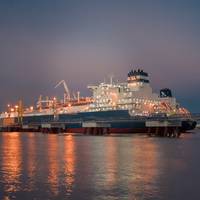
The global search for lower carbon forms of energy and demand for cost-effective ways to serve power demand in emerging markets and remote locations is driving interest in floating storage and regasification units (FSRU).FSRUs are a faster and more flexible way to import natural gas to power-constrained places, so demand for the units is increasing and the business case for owning them is growing stronger.Their model for supplying energy and transport fuel is historically well proven: they offer faster development timelines and lower initial capital costs compared to onshore regasification…
AKASOL Intros Lithium-Ion Battery
The German expert for lithium-ion battery systems AKASOL announced that, its fast-charging battery systems power a range of prototype vessels including the brand new 31.2m Vanadis hybrid superyacht from Italian builder Cerri Cantieri Navali (CCN).The electric-vehicle battery supplier for commercial vehicles said in a press release that Vanadis, the first in CCN’s new ‘E-Prop’ line of hybrid propulsion motor yachts, is powered by traditional diesel engines and an electric engine, which are supported by generators and AKASOL’s AKASystem 15 OEM battery system.The vessel is capable of cruising short distances and anchoring under electric power, minimizing vibration, diesel exhaust pollution and noise during port calls or sleeping, all while cutting fuel costs.
Dry Bulk Shipping: No Room for Newbuilds
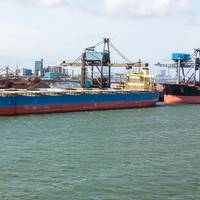
DemandThe improved fundamentals during 2017 are clearly seen in the freight rate levels during the first four months of 2018. Freight rates for Handysize, Supramax and Panamax went up by 25-27 percent as compared to the same period of last year. All three sectors moved from loss-making average earnings in the full year of 2017 to a profitable level in first four months of 2018.Meanwhile, capesize freight rates improved by only 5 percent as compared to the same period last year…
DNV GL Opens LNG Test Center
DNV GL opens LNG test center. The facility, at the organization’s existing renewable energy technology and gas laboratory site is the first type of facility with a capacity compatible for the downstream sector. Its capacity is up to 250kg of liquefied gas and boasts a heat exchanger that allows the temperature of the LNG – and therefore its boil-off – to be precisely regulated. Johan Holstein, Head of gas testing and analysis at DNV GL – Oil & Gas, said the testing of new sensor technology to rapidly identify the composition of LNG would be a priority. “The current accredited technology, gas chromatography, can take 3-5 minutes to show the composition of LNG,” Holstein explained.
General Atomics Wins Navy Contract
General Atomics Electromagnetic Systems (GA-EMS) won a contract from the U.S. Navy through the Defense Ordnance Technology Consortium (DOTC) to develop advanced, high energy density capacitors for use in High Power Microwave (HPM) systems. GA-EMS is applying advanced technologies to create high energy density capacitors that will enable the deployment of HPM systems on smaller and more tactically relevant Navy platforms. GA-EMS is leading the research, development and demonstration of high energy density capacitor technologies that enable more powerful, compact system designs for a broad range of next generation land and sea-based platforms and directed energy applications.
LNG Fuel is Not a Cure-all Solution
Liquefied natural gas (LNG) is not a panacea to reducing greenhouse gas emissions, and its increasing use as a marine fuel could be worse for the environment than burning heavy fuel oil, said Ian Adams, the former CEO of the International Bunker Industry Association. “Whilst it is well documented that LNG is an excellent solution for reducing SOx and NOx emissions, I am dismayed to see it being promoted as a solution for reducing GHGs,” Adams said, in stark contrast to claims that the use of LNG as a marine fuel can reduce the industry’s CO2 emissions by as much as 75 percent. Adams, a Fellow of the Institute of Marine Engineering, Science & Technology who now heads the Association of Bulk Terminal Operators…
Energy Action Month Reinforces Navy's Energy Resiliency
Through a presidential proclamation, October has been designated as Energy Action Month to stress the importance of energy for our nation's economic vitality today and for a sustainable future. The Department of Navy's Energy Action Month theme for 2016 is "Power. Presence." This theme illustrates the strong connection between the Navy and Marine Corps' wise use of energy and our ability to be when and where we're needed for national security and humanitarian assistance missions worldwide. In honor of Energy Action Month, naval commands and organizations are demonstrating their commitment to energy resiliency by reducing energy consumption and promoting awareness of energy as an enabler of combat capability.
DNV GL, SGN Join Forces to Deliver Innovative project
Following a successful Network Innovation Competition bid in 2015, DNV GL has secured innovation funding from SGN to partner in a project to demonstrate the viability and practical reality of a mixed-source, energy-centric gas network for the future. The project was developed, and will be delivered, in partnership with SGN who are one of the UK's key gas distribution operators, and industry leaders in innovation. The integrated energy network of the future must be flexible, secure, cost effective and above all safe. The changing gas industry, driven by a reduced North Sea supply is increasingly required to accommodate gas from more diverse sources such as biomethane and shale gas.
Wartsila's Value of Expediency
Regasifying and storing LNG offshore has allowed customers to import gas without committing to land-based infrastructure. The option also speeds up access to vast amounts of energy. “Wärtsilä focuses on completing the LNG value chain,” says Timo Koponen, Vice President, Flow and Gas Solutions, Wärtsilä. “It’s basically creating an alternative to pipeline gas. The end users vary, from industrial clients connected to smaller FSRUs – essentially an LNG carrier equiped by the addition of on-board storage and regas facilities – to large utilities. Last year, Hyundai Heavy Industries (HHI) ordered Wärtsilä seawater/propane based regasification modules for two FSRU customers, Höegh LNG and Gazprom. A bait for all types of consumers is expediency.
First Methanol-fueled Tanker Launched
Launched at the Hyundai Mipo dockyard in Ulsan, South Korea, the newly built Lindanger is the world’s first methanol fueled ocean-going vessel. The ship is the first of two dual-fueled 50,000 dwt tankers owned by Norwegian firm Westfal-Larsen that will be chartered to global marine transportation company Waterfront Shipping. With a MAN designed Hyundai–B&W 6G50ME-9.3 ME-LGI dual-fuel, two-stroke engine on board, the Lindanger can run on methanol, fuel oil, marine diesel oil or gasoil. The Lindanger has been assigned the additional notation LFL FUELLED to demonstrate her compliance with the DNV GL rules for low flash point marine fuels.







